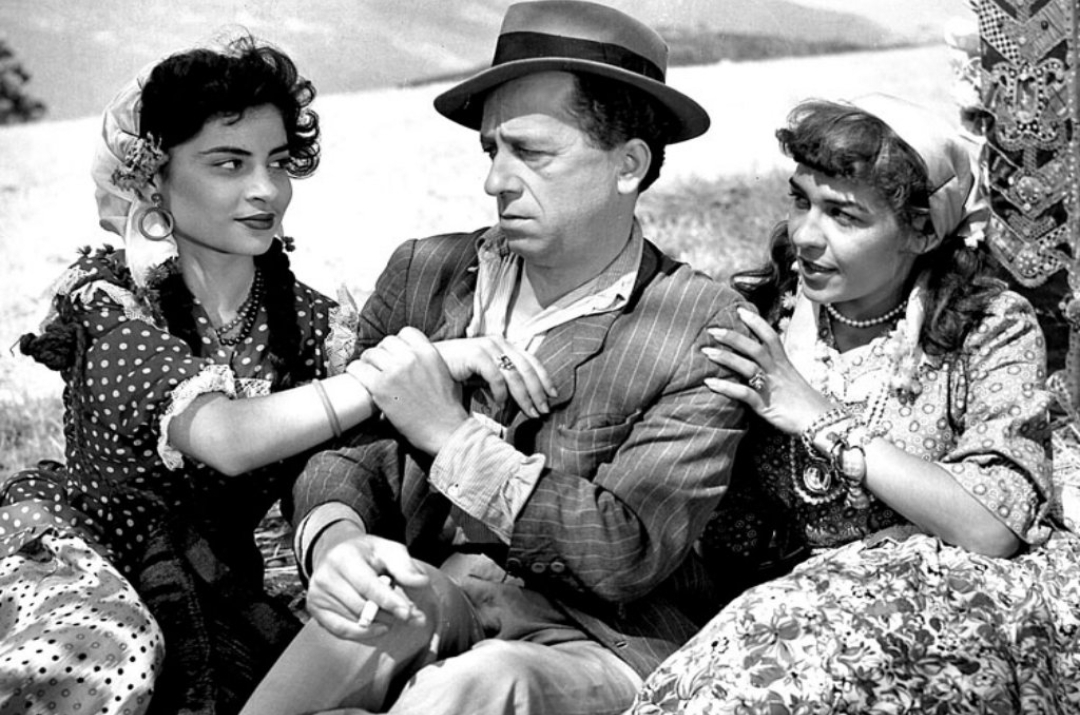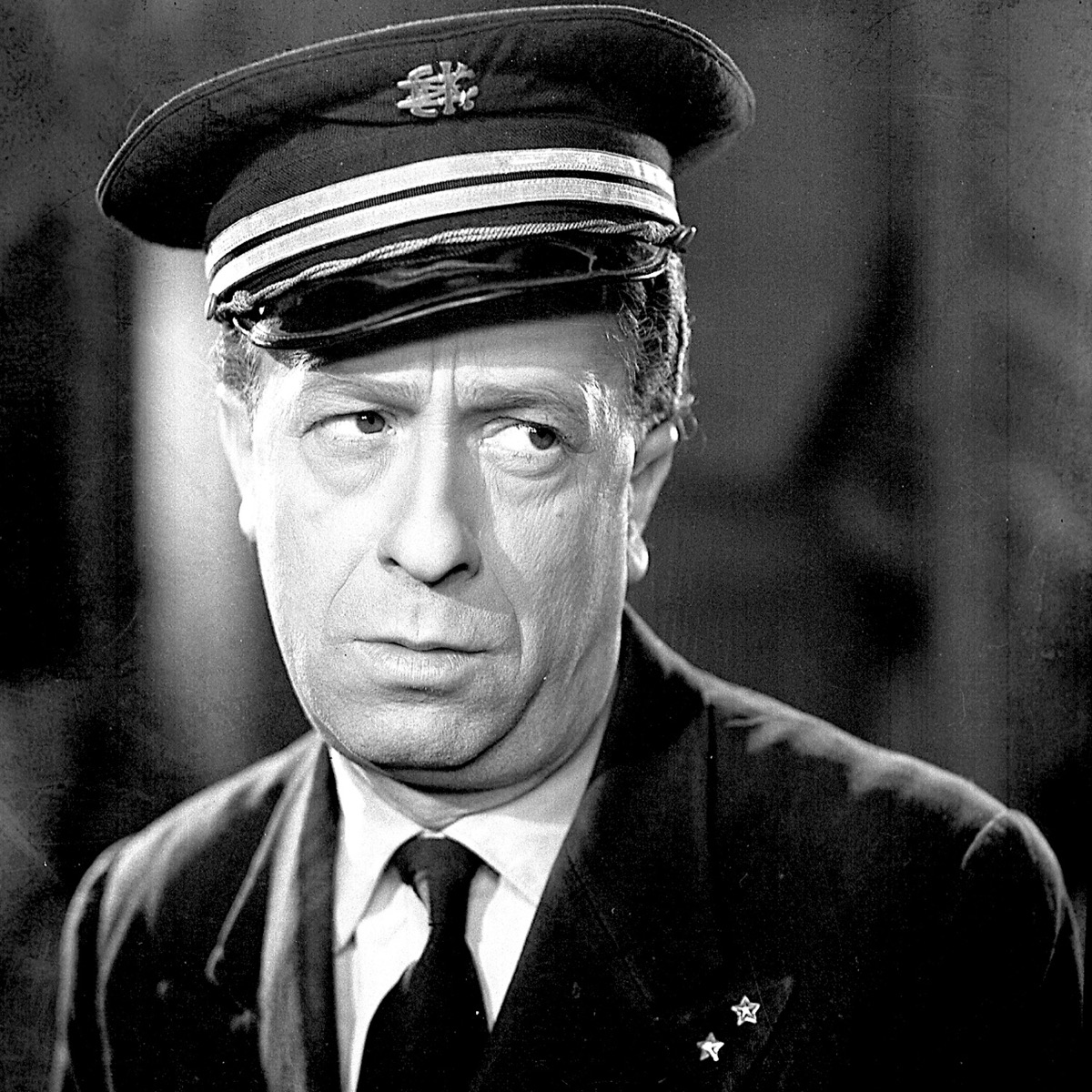He was one of those actors who didn’t play roles – he lived them. Mimis Fotopoulos, with his distinctive smile and genuine humanity, left an indelible mark on the history of Greek theatre and cinema. A man who loved art, people, and life with all his heart. He passed away on this day, October 29, 1986, leaving behind a legacy that remains as vivid as his unforgettable lines.
From Ilia to the Stage
Born in 1913 in Zatouna, Arcadia, and raised in Anogeia, Ilia, Mimis Fotopoulos grew up in poverty but with a deep belief in the power of art. In 1933, he graduated from the National Theatre Drama School, having already shown his talent in student performances. His professional debut came with “Erofili” by Chortatsis at the National Theatre. From that moment, his path was clear – the stage would become his second home.

“There was never a role I didn’t respect. Even the smallest one had a human soul inside, and it was my duty to bring it to life,” he once said, expressing his deep moral connection to acting.
The Actor Who Spoke with His Soul
During the German Occupation, Fotopoulos joined progressive theatre troupes, often risking his safety for his art. After the war, he became one of the most beloved figures in popular Greek theatre. He possessed a rare gift for transforming drama into sarcasm and farce into philosophy.
Cinema made him a household name. Beginning with “The Germans Strike Again” (1948) by Sakellarios and Giannakopoulos, Fotopoulos established himself as one of the most recognizable faces of post-war Greek cinema. In “The Drunkard” (1950), he moved audiences with his emotional depth, while films such as “The Cardsharps,” “The Girl in Black,” “Miss Director,” “An Italian Woman from Kypseli” and “The Woman Should Fear Her Husband” showcased his unique ability to master both comedy and drama.
He was the actor who could make you laugh and cry within the same scene. As director Dinos Dimopoulos once said, “Fotopoulos was the last of the comedians who acted with his eyes – not with his lines.”

The Poet and the Intellectual
Beyond the stage and screen, Mimis Fotopoulos was also a poet, columnist, and painter. He wrote more than ten books, including poetry collections such as “At Life’s Fair,” “The Love Notes,” “From the Diary of a Poor Devil,” and “Notes of an Actor.” Through his writings, he revealed a deeply thoughtful mind, full of irony, compassion, and quiet wisdom.
“If you don’t feel pain for humanity, you can’t interpret it,” he used to say — a phrase that sums up his entire philosophy of life and art.
A Career Across Theatre and Cinema
Fotopoulos’s theatrical career was remarkable in both range and duration. He mastered every genre — from ancient drama to modern farce and character comedy. He worked with the National Theatre, the Myrat–Zouboulaki troupe, the Katerina troupe, and later formed his own company, producing plays he wrote and directed himself.
On stage, he shone in works such as:
“The Imaginary Invalid” (Molière),
“The Government Inspector” (Gogol),
“The Courtyard of Miracles” (Kampanellis),
“The Diary of a Madman,” “The Card Player,” and “The Mistress of the Inn” (Goldoni).
Over the decades, he became a mentor to younger generations. He directed, wrote revues, taught in drama schools, and created original roles that became classics. He never hesitated to satirize authority, society, or even himself.
His filmography includes more than 70 films, among them:
The Germans Strike Again (1948)
The Drunkard (1950)
The Cardsharps (1954)
The Girl in Black (1956)
The Auntie from Chicago (1959)
Miss Director (1964)
An Italian Woman from Kypseli (1968)
The Woman Should Fear Her Husband (1965)
The Priest’s Wife, The Victim, The Swindler, Lisa and the Other
He also appeared on television, in classic productions like “Christ Recrucified” and “Luna Park”, bringing his theatrical sensitivity to the small screen with modesty and power.
At the same time, he devoted himself to painting, creating works that revealed a quiet depth and human warmth. His paintings, often inspired by everyday life, were later exhibited posthumously, showing yet another side of his artistic soul.
His Legacy
Mimis Fotopoulos passed away on October 29, 1986, at the age of 73, leaving behind a legacy of humanity, humor, and artistic truth. He was not just a great actor — he was a popular philosopher, a creator who saw art as a way of living.
His epitaph reads: “Here rests a man who loved life, his work, and people.”
And indeed, his art continues to inspire and remind us that true talent comes from the heart.




